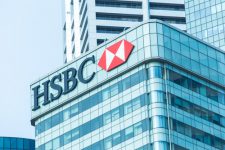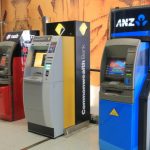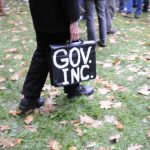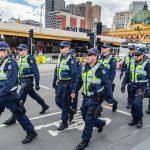Big Banks Get Away With Fines Despite Allowing Money Laundering to Flourish

The global drug trade is estimated to be worth half a trillion US dollars every year, which accounts for around 1% of all worldwide trade.
Those in the higher echelons of drug enterprises are constantly looking for ways to launder the proceeds of their criminal activity; in other words, to process the funds in such a way that they appear to be lawfully derived.
Money laundering
There are countless ways to launder money – from depositing in countries with strong banking privacy laws, to creating webs of shelf companies which make transactions difficult to trace, to transfers through multiple financial institutions and pathways, to buying and running businesses, transferring to tax havens, conducting gambling operations and the list goes on.
Already, a number of countries including the United States have taken steps to minimise the ability of drug traders and corrupt officials to launder money through financial institutions. Australia is not one of those countries, and can be seen as an easy target for money laundering practices.
Using financial institutions to launder money
International drug organisations from Mexico and Columbia will generally smuggle drugs into another country such as the United States, and then attempt to launder that money to make it appear legitimate.
One of the most common ways to do this is through a network of low-level participants depositing large numbers of relatively small amounts of money into bank accounts, after which moneys go through a series of transfers.
This can be achieved through a simple, four-step process:
- Drug traffickers deliver proceeds to money launderers in a ‘money pickup’,
- Launderers deposit the money into numerous different accounts in low enough sums that reporting requirements are not triggered,
- The funds are transferred to different accounts in different names to different countries in varying amounts,
- The money then re-enters the mainstream economy in such a manner that it appears to originate from a legitimate source.
Launderers will often purchase liquid goods such as gold or shares at some point during the process and then them, then invest in another source, sell that product and so on to make the illegality harder to detect and trace.
Complicity of banks
Banks have been accused for many years of systematically turning a blind-eye to suspicious transactions and benefiting from the use of illegally derived funds.
In 2012, Europe’s biggest bank HSBC, paid a $1.9 billion fine to avoid prosecution for facilitating the laundering of at least $881 million in Mexican and Columbian drug cartel money. The investigation also identified the transfer of money to accounts linked to groups suspected of terrorism.
Dutch lender Rabobank was found to have accepted at least $369 million in illegal proceeds from drug trafficking between 2009 and 2012. The bank pleaded guilty to one count of conspiracy to defraud the United States after lying to the regulators who were investigating the matters.
And the bank Wachovia, now part of Wells Fargo, agreed to pay $160 million in 2010 after it was found to have laundered at least $100 million in drug money.
Court filings suggest that, since 2006, many US banks have reached settlements with the Justice Department over money laundering.
In fact, the Justice Department has signed agreements, often withholding prosecution in exchange for bank promises to tighten oversight, with American Express, Union Bank of California, Lloyds, Credit Suisse, ABN Amro Holding, Barclays and Standard Chartered.
Closer to home
In Australia, briefings by federal and state policing agencies suggest that the big four banks – Westpac, ANZ, NAB and CBA – have all been used by money laundering syndicates. The practice is also suspected to have infiltrated many mid-tier institutions.
AUSTRAC initiated investigations into CBA last year for numerous offences, including failing to report suspicious transactions in a timely manner. Many of those transactions were over the $10,000 threshold, which triggers reporting requirements.
The investigations also found that as much as $1.5 million of ‘suspicious money’ was deposited at CBA branches, almost exclusively in Sydney, by just six drug syndicates without any reports of suspicious activity being filed.
The CBA recently agreed to pay a fine of $700 million to settle the allegations, and many believe the payment will help high-ranking executives avoid personal liability through prosecution for the infractions.
Lack of accountability
While the penalties may seem heavy, they have been criticised as a ‘drop in the ocean’ compared with the profits generated as a result of the complicity of banks in criminal activity.
Regulators have also been slammed for settling cases without prosecution where there has been evidence of criminal conduct.
In the HSBC case, for example, federal investigators found evidence “that senior bank officials were complicit in the illegal activity”. However, it was revealed in 2016 that US Justice Department officials, led by President Obama’s former Attorney General Eric Holder, overruled their prosecutors’ recommendation to pursue criminal charges against HSBC.
The government’s rationale was that putting HSBC executives from a “systematically important institution” in prison could threaten the stability of the financial system, and that it was in the public interest to accept the fines on the proviso the bank undertake to clean up its act.
However, it has been reported that HSBC ultimately replaced its senior management, leading to suggestions they must not have been as important as the Justice Department made them out to be.
Critics also pointed out that the “record” $1.9 billion fine was about 5 weeks of income for the bank, and is unlikely to act as a deterrent.
Double standards
Kristi Jacobson, director of the documentary “Cartel Bank,” has highlighted the hypocrisy of criminalising drugs and imposing heavy sentences of drug offenders while allowing those who facilitate money laundering activities to escape criminal prosecution.
She outlines that governments tend to over punish the poor and minority groups while allowing the wealthy to avoid punishment by allowing their employers to pay fines.
“A kid busted for marijuana possession can’t get away with saying, ‘I haven’t done a good job and I’ll change my behavior,’ as HSBC was allowed to,” she writes.
The documentary’s executive producer Alex Gibney believes we are faced with a situation whereby the government views bankers as “too big to jail,” instead focusing on the powerless.
“We hear a lot about the war on drugs but when you have a bank like HSBC that is literally making drug-dealing possible through money laundering, you wonder why is it they can’t be held to account.”
US money-laundering officer Robert Mazur expresses the view of many, that “the only thing that will make the banks properly vigilant to what is happening is when they hear the rattle of handcuffs in the boardroom”.







